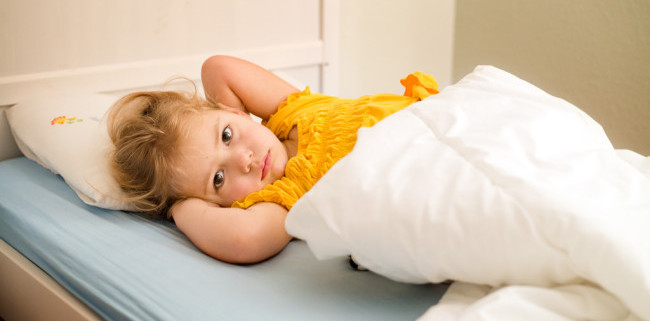
From crankiness to behavioral issues, you surely know what happens with a sleep-deprived anxious child. But you may not know that inadequate sleep can not only impact your anxious child on a daily basis, but it can contribute to depression and additional anxiety disorders down the line.
Anxious children who habitually experience disrupted or insufficient sleep can end up suffering even more greatly in later years, according to a study undertaken by University of Houston researchers.
The Study
Researchers are conducting the study by temporarily decreasing sleep for 50 children aged 7 to 11 to examine the impact on the children’s emotional health. Inadequate sleep appears to have two effects:
- Creating more negative emotions
- Changing positive emotional experiences
After a mere two nights of inadequate sleep, children were less able to recall details about, less reactive to, and receiving less pleasure from positive experiences and activities. Researchers noted if the children continued the patterns of inadequate sleep, they would be prone to depression, anxiety and additional emotional issues.
More Sleep Research
In addition to the study, the researchers published an article in Sleep Medicine Reviews which explored the connection between sleep and emotional development. Poor sleep can have a major impact on anxious children’s ability to:
- Self-monitor behaviors
- Pick up on other people’s non-verbal cues
- Accurately read other people’s emotions
Mix in poor impulse control typically experienced by teens, and researchers point to the “perfect storm” for negative emotions as well as consequences.
The short-term effects of inadequate sleep can include a decreased likelihood of seeking out rewarding or positive experiences that require effort, such as activities done for socialization or fun. The longer-term effects of not participating in such activities is a notable increase in the risk of depression as well as an overall poor quality of life.
Paying attention to sleep habits at an early age is critical, since both sleep and emotional regulatory systems are developing at that time. Due to their greater brain plasticity, children require more sleep than adults, and not receiving that sleep can take a heavy toll on their emotional development.
Ensuring Healthy Amounts of Sleep
Psychological well-being is dependent on receiving healthy amounts of adequate sleep, with researchers urging parents to treat adequate sleep with the same type of discipline used to ensure their children brush their teeth, eat a healthy diet and get a daily dose of exercise.
Our blog on Sleep, Your Child’s Anxiety and How to Make it Better by Tonight serves up a number of handy tips for helping your anxious child develop healthy sleeping habits. Between nighttime slumbering and daily naps, the recommended amounts of sleep for children are:
- Age 2: 11 to 14 hours sleep
- Age 3 to 5: 10 to 13 hours
- Age 6 to 8: nine to 11 hours
Establishing and maintaining healthy sleeping habits in childhood greatly increase the likelihood your anxious child will continue those habits into adulthood. This, in turn, reduces the risk of suffering from depression, additional anxiety or other mental health issues.
SOURCES:
Photo Credit: donnierayjones via Compfight cc





